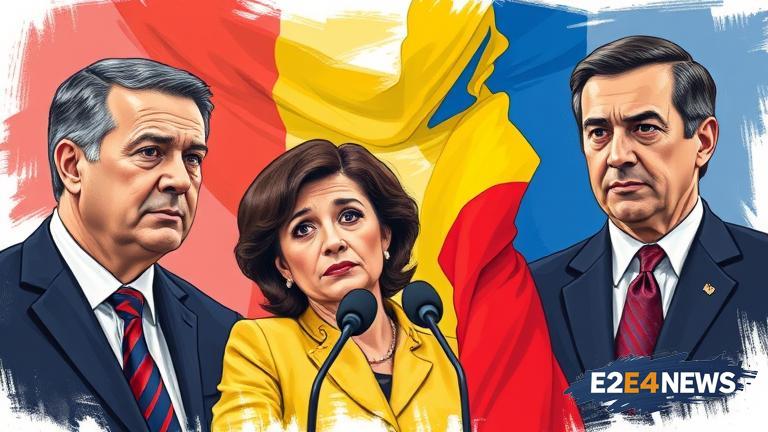The ruling coalition in Romania, comprising the National Liberal Party (PNL) and the Social Democratic Party (PSD), is facing internal tensions as the Bucharest mayor elections draw near in 2025. The elections are expected to be highly contested, with several candidates already announcing their intention to run. The PNL and PSD have been allies since 2020, but their relationship has been strained in recent months due to disagreements over various policy issues. The tensions between the two parties have been exacerbated by the upcoming elections, with each party seeking to assert its dominance in the capital city. The Bucharest mayor elections are seen as a crucial test for the ruling coalition, with the outcome potentially impacting the balance of power in the government. The PNL and PSD have different visions for the city’s development, with the PNL focusing on infrastructure and transportation, while the PSD is prioritizing social welfare and public services. The elections are also expected to be influenced by the country’s economic situation, with Romania facing challenges such as high inflation and a large budget deficit. The ruling coalition has been criticized for its handling of the economy, with some arguing that it has failed to implement effective policies to address the country’s problems. The opposition parties, including the Save Romania Union (USR) and the Democratic Alliance of Hungarians in Romania (UDMR), are seeking to capitalize on the government’s unpopularity and gain ground in the elections. The USR has been gaining popularity in recent months, with its leader, Dan Barna, emerging as a potential contender for the mayor’s seat. The UDMR, which represents the country’s Hungarian minority, is also expected to play a significant role in the elections. The party has been a key player in Romanian politics, and its support will be crucial for any party seeking to win the mayor’s seat. The elections are also expected to be impacted by the country’s demographic changes, with Bucharest experiencing rapid urbanization and an influx of young, educated voters. These voters are likely to be attracted to parties that offer a vision for a modern, cosmopolitan city, with a focus on innovation and sustainability. The ruling coalition will need to adapt to these changing demographics and offer a compelling vision for the city’s future in order to win the elections. The PNL and PSD will also need to resolve their internal differences and present a united front in order to defeat their opponents. The elections will be closely watched by international observers, who will be monitoring the campaign for signs of irregularities or corruption. The outcome of the elections will have significant implications for Romania’s political landscape, with the potential to impact the balance of power in the government and the country’s relationships with its European partners. The European Union has been keeping a close eye on Romania’s political developments, with the country facing criticism for its handling of corruption and the rule of law. The EU has warned Romania that it needs to make significant progress in these areas in order to avoid sanctions and maintain its membership in the bloc. The Bucharest mayor elections will be a key test for Romania’s commitment to democratic values and the rule of law, with the international community watching closely to see how the campaign is conducted and the outcome is respected. The elections will also have significant implications for the country’s economic development, with the winner of the mayor’s seat expected to play a key role in shaping the city’s economic policies. The city’s economy is a significant contributor to Romania’s overall GDP, and the winner of the elections will need to implement policies that promote economic growth and development. The elections are expected to be highly competitive, with several candidates already announcing their intention to run. The campaign is expected to be intense, with candidates engaging in heated debates and rivalries. The outcome of the elections will be closely watched by the international community, with the potential to impact Romania’s relationships with its European partners and its position in the region.
